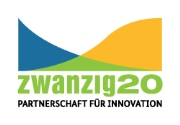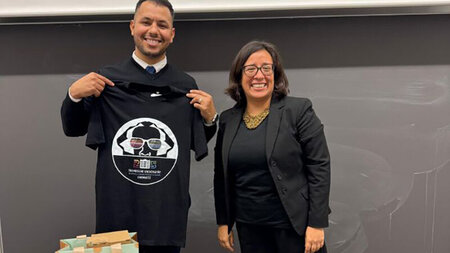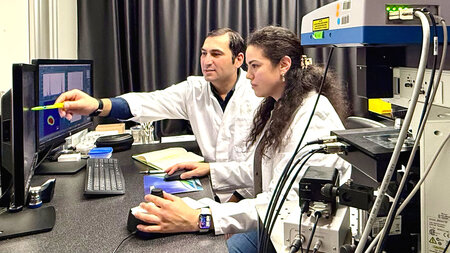fast realtime
Effect of system latency on real-time perception and system control within tactile interaction

Project Partners
- TU Dresden
- Fraunhofer IFF
- Cloud & Heat
Funding
 Bundesministerium für Bildung und Forschung (BMBF)
Bundesministerium für Bildung und Forschung (BMBF)

Duration
02/2015-01/2018
Project
Fast realime is part of a cluster project, which is embedded in the funding project „Zwanzig20 – Partnerschaft für Innovation“ of the Bundesministeriums für Bildung und Forschung. The vision of the whole project is a technological breakthrough with real-time capabilities in wireless sensor-actor systems (end-to-end latency of 1 – 10 ms).
In the future, the amount of sensors and actors within systems will increase rapidly. This enables for instance the development of systems for pedestrian recognition, which can initiate an automatic evasive or braking maneuver of a vehicle when a pedestrian suddenly crosses the street. At the same time, the following vehicle can be warned immediately. This can make a contribution to minimizing accident risk in road traffic. Also in other disciplines like sport, medicine or factory automation such trends are foreseeable in the near future.
One precondition for many of such new and improved functionalities is wireless networking in real-time. This is a big challenge, especially for systems with a high amount of sensors and actors which have to be connected via mobile communications over wide areas without any gaps. For many applications, topics of human-machine-interaction play a key role, especially the psychological effects of latency parameters regarding real time perception and system control.
Within the project fast realtime, effects of different latency parameters on users’ experience and behavior are examined for interaction with various technical systems at the professorship. One objective is to find a way to structure different kinds of human-machine-interactions in the various fields of application (medicine, automobile, logistic) in a way that makes it possible to derive the relevant influencing factors and latency requirements. For this purpose an experimental approach will be developed which makes it possible to examine the psychological effect of latencies in the context of the interested forms of human-machine-interaction. A special focus of this research lies on the tactile/haptic interaction with technical systems (e.g. examination of the “tactile grip” as an input device).
Further information: http://www.fast-zwanzig20.de/DE/
| Contact | Dr. Thomas Franke, Nadine Rauh |
|---|---|
| Project leader | Prof. Dr. Josef Krems |
| Staff | Dr. Thomas Franke, Nadine Rauh |




